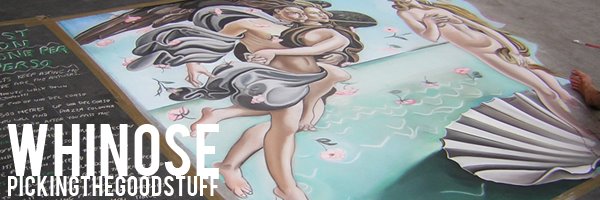Nowadays, this culture is changing rapidly. Everyone who thinks they can rap, who thinks they can create a beat, goes to a studio and records himself a demo. If it’s catchy, it’ll become a hit. Hey, why blame the record companies? They only supply the demand of the consumers. However, they are to blame in some way, because this commercial, blunt music was fuelled in the 1980’s by the same record companies. Remixes, bad synthesizers, large hair and fluorescent clothing, the 80’s were a disaster for the development of pop music.
Then, a new phenom showed up. Rap was something for ethnic minorities to escape their everyday problems, to let out their aggression about society and everything around them that bothered. It became an instant hit. The sound was so refreshing, so unique, often catchy and yet full of things worth saying. The early 90’s were part of hip hop’s Golden Age, featuring artists like the aforementioned Kool G Rap, but also Public Enemy, Big Daddy Kane, Big L, Big Punisher, Nas’ great debut album Illmatic, and so on.
After this, hip hop got too commercial, too “gangsta”, as mentioned by a lot of critics. There was space for goofing around, for meaningless brag and boast songs that were only held together through the beat. At this point, the underground scene played a big part in the development of a new wave of top class hip hop, with a load of conscious rappers. The group held responsible for reviving hip hop would be the Native Tongues Posse, with long-time members De
With the Soulquarians, hip hop received new blood, a fresh face and (again) a lot of mainstream support. This is acknowledged by the success of rappers Common, Mos Def (who pursuits an acting career, appearing in the new Michel Gondry-film “Be Kind, Rewind” (a must see!)), Grammy-award winning band The Roots and the reviving success of old school heroes Wu Tang Clan and KRS-One. Also, the argument that every rapper should be black doesn’t apply anymore. Rap collective CunninLynguists (with the Caucasian DJ Kno) received great critical acclaim with each of their albums, their most recent being 2007’s Dirty Acres. And what about rapper and producer Eminem? He may be goofing around sometimes, but he has written some excellent stuff and is marked as one of the most selling rappers of all time. Or a relatively new face, Brother Ali. Ali is a white albino with a soulful voice and really good lyrics, you should check him out sometime.
Please, don’t listen to the crap that the Billboard serves you. You’d rather begin a search on hip hop websites to learn about real hip hop, real stories and real people.
Hip hop is long before dead, it’s alive and kicking.


Geen opmerkingen:
Een reactie posten